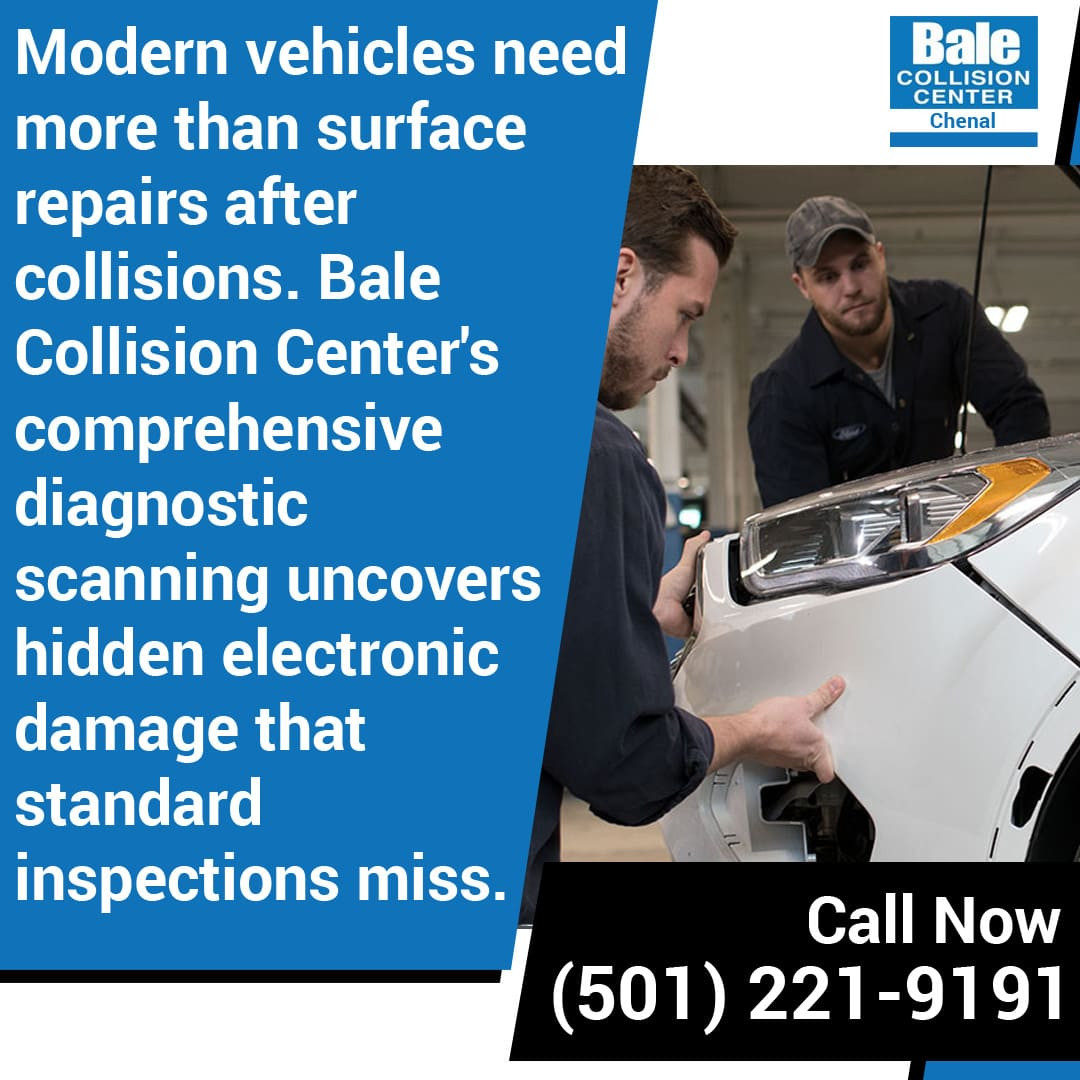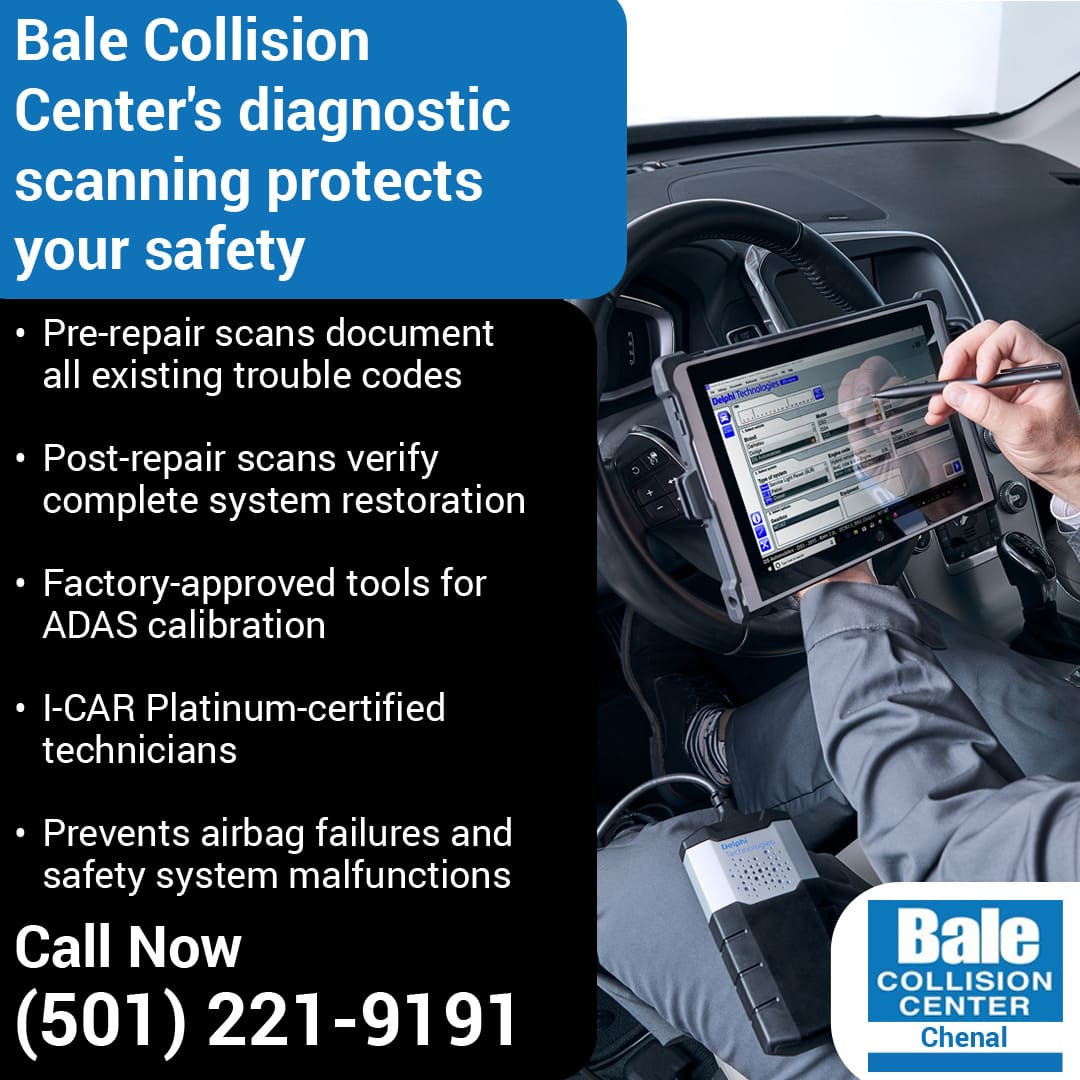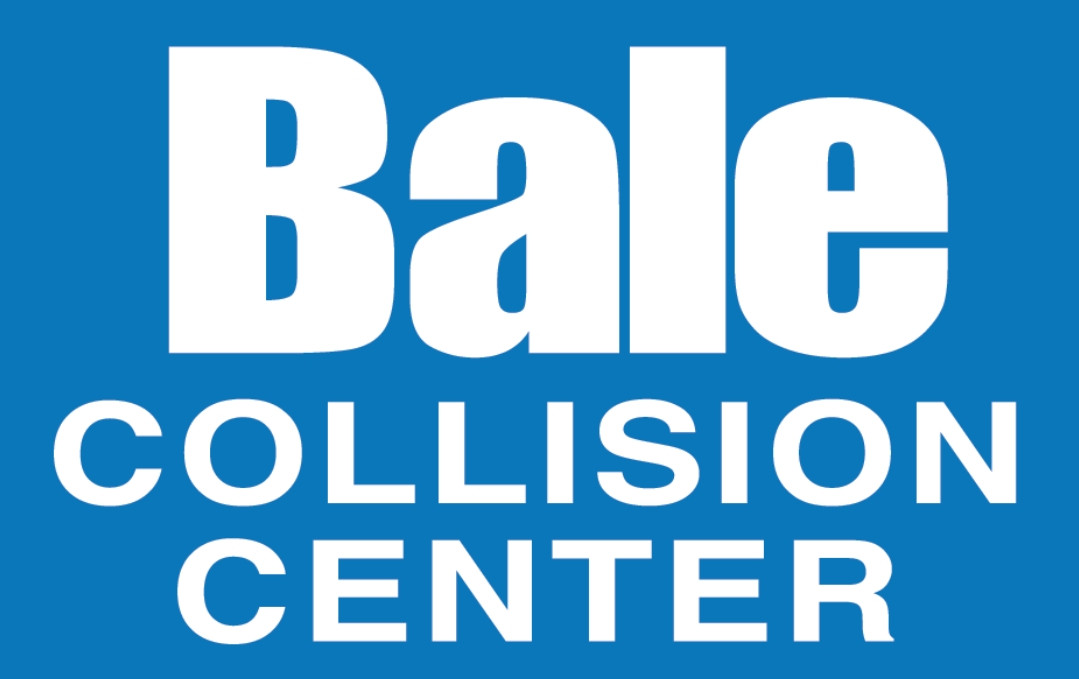Little Rock, AR – Bale Collision Center (Chenal), a leading provider of collision repair in Chenal Parkway, Little Rock, is highlighting the essential role of diagnostic scanning in modern vehicle restoration. As advanced electronics become more integral to safety and performance, identifying hidden damage through proper scanning is a non-negotiable part of high-quality auto collision repair.
Hidden Electronic Damage from Collisions
Modern vehicles contain dozens of interconnected control modules, sensors, and electronic systems that can be affected during even low-speed impacts. While traditional repairs focus on visible damage, electronic components beneath the surface often suffer undetected failures that can compromise essential functions like braking assistance, airbag deployment, and blind spot detection.
Impacts can send force through the vehicle’s frame, cracking circuit boards, misaligning sensors, or loosening wiring harnesses. Without specialized scanning tools, these issues go unnoticed. Bale Collision Center’s scanning process identifies such failures before they become dangerous problems. This proactive approach is essential for preserving safety in modern vehicles, where a single misaligned radar sensor can compromise the effectiveness of multiple ADAS features.
Why Diagnostic Scans Are Critical in Auto Collision Repair
Collision repair includes two scans: one before repairs begin and one after they’re completed. This dual-scan process serves several functions:
Pre-Repair Scan
- Documents all existing trouble codes
- Identifies damaged systems beyond the collision area
- Protects customers from surprise post-repair issues
Post-Repair Scan
- Confirms all systems are functioning properly
- Detects any new issues caused during the repair process
- Verifies that ADAS and safety features are calibrated and restored
Advanced driver assistance systems such as automatic braking, lane-keeping assistance, and adaptive cruise control require exact sensor alignment and system calibration. Bale Collision Center uses factory-approved tools and trained technicians to meet these technical demands. The post-repair scan also confirms that no new diagnostic trouble codes (DTCs) were introduced during repairs, ensuring that all components communicate as intended.
Differences in Repair Outcomes With and Without Proper Scanning
Vehicles repaired without proper diagnostic scans often leave with hidden electrical faults. These may include malfunctioning airbags, random dashboard warnings, non-functional ADAS, or check engine lights that appear days later. Undiagnosed sensor damage can also lead to critical system failures during future accidents. Proper scanning helps prevent:
- Airbag non-deployment
- Failed emergency braking
- Inconsistent warning systems
- Long-term electrical issues
It also protects the vehicle’s resale value. Buyers and inspectors increasingly check for diagnostic records and electronic system functionality. Fault codes present at sale can reduce offers or void dealer buybacks. Dealerships and certified used programs often require evidence of successful post-repair scans to validate trade-in eligibility. Without this documentation, vehicles may be flagged during resale inspections or face warranty denials.
Post-Collision Diagnostics at Bale Collision Center
Located in the heart of West Little Rock, Bale Collision Center has been serving Arkansas drivers since 1952. The Chenal Parkway facility is equipped with advanced diagnostic systems that meet manufacturer standards. Technicians hold I-CAR Platinum certifications and have extensive training in car collision repair and vehicle electronics.
The team uses OEM-grade scan tools capable of reading proprietary manufacturer data and freeze-frame records stored by vehicle control modules. Their process allows accurate identification of both stored and pending fault codes that standard tools may overlook. By following factory repair procedures and using advanced scanning systems, the collision center in Chenal Parkway, Little Rock, provides precise, reliable repairs that meet the needs of today’s complex vehicles.
Protecting Vehicle Safety Through Proper Diagnostic Testing
Choosing a certified collision repair provider that includes complete diagnostic scanning is the most effective way to restore your vehicle after an accident. Bale Collision Center in Chenal Parkway, Little Rock, delivers repairs that go beyond paint and panels. They verify that your car’s electronic systems are fully functional and safe to operate.
Electronic safety systems such as collision warning, parking assist, and adaptive lighting are standard on many vehicles. Without post-repair verification, these features may remain offline or function incorrectly, posing serious risks. Scanning also ensures that vehicle software is up to date, resolving bugs that may impact performance or battery life in electric and hybrid vehicles.
Don’t compromise your safety with incomplete repairs. For trusted collision repair backed by post-collision diagnostics, contact Bale Collision Center today at (501) 221-9191 or email [email protected].




